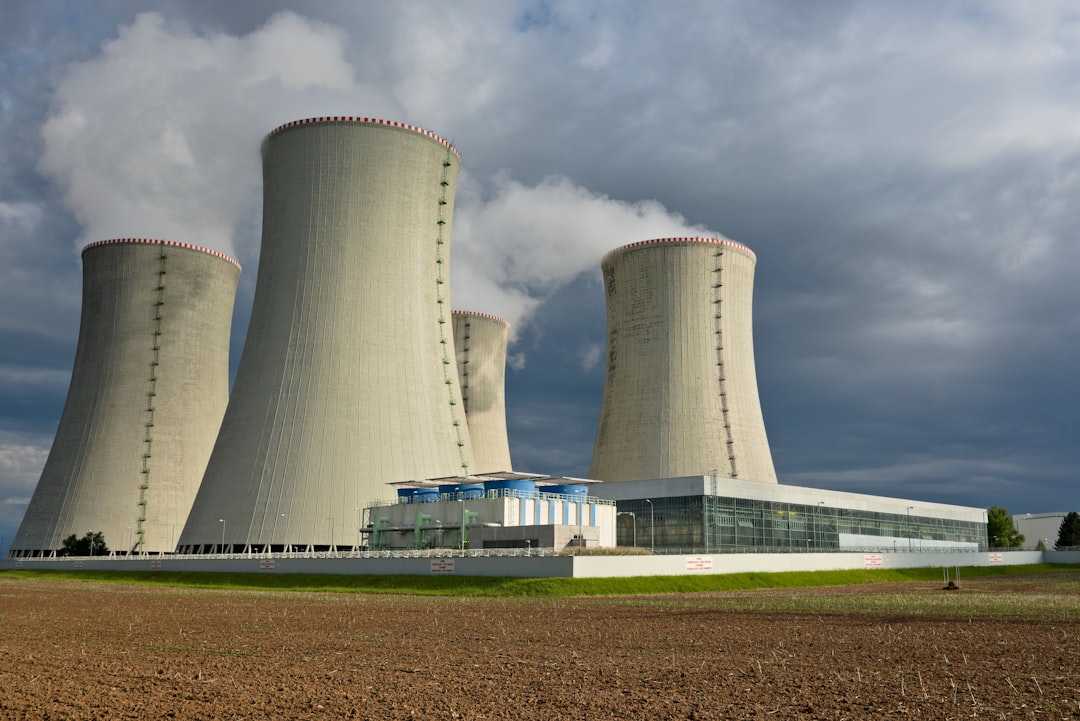What is it about?
This paper investigates the environmental impact of using low-carbon fuels in a diesel engine, focusing on both regulated and unregulated emissions. The study explores how different fuel blends affect emissions of pollutants, such as formaldehyde and aldehydes, under various engine operating conditions. The findings reveal that while oxygenated fuels may reduce certain emissions at low loads, their impact varies at different engine loads. Optimizing the engine for low-carbon fuels can effectively reduce nitrogen oxide emissions but may lead to increased nitrous oxide emissions. Overall, the research sheds light on the potential of low-carbon fuels to meet environmental regulations without sacrificing overall emissions performance in diesel engines. This information is crucial for both researchers and the general public, offering insights into sustainable alternatives for a cleaner and greener transportation sector.
Featured Image

Photo by Gab Pili on Unsplash
Why is it important?
This paper holds significance for both researchers and the general public by investigating the environmental impact of low-carbon fuels in diesel engines. The research sheds light on the potential of alternative fuels to meet emissions regulations while maintaining engine performance. This information is crucial for policymakers shaping environmental standards and regulations, as well as for consumers seeking cleaner fuel options. The study contributes to the ongoing dialogue on sustainable transportation, providing valuable insights into the balance between regulatory compliance and the adoption of eco-friendly fuel technologies. Ultimately, the findings of this research contribute to a broader understanding of how fuel choices can impact air quality and environmental sustainability, making it relevant and impactful for a wide audience.
Perspectives
In contributing to this research article, I found immense satisfaction in exploring the potential of low-carbon fuels (LCFs) and their impact on emissions in the automotive sector. Collaborating with fellow researchers who share a passion for sustainable solutions made the journey particularly rewarding. What stood out to me throughout this process was the opportunity to delve into an area with the potential to reshape the future of transportation. Investigating the performance of distinct fuel blends, especially those with renewable content, allowed us to uncover valuable insights that go beyond the surface of standard emissions analysis. The nuanced understanding of both regulated and unregulated emissions opens up exciting possibilities for creating cleaner and more efficient automotive technologies. As a researcher, witnessing the connection between our findings and real-world implications has been a gratifying experience. The prospect of low-carbon fuels not only meeting stringent environmental regulations but also contributing to a broader movement towards sustainable transportation is genuinely exciting. It aligns with a shared vision of a greener future and showcases the potential impact that research can have on the broader community. I hope that our work sparks interest not just within academic circles but resonates with a wider audience, including those in the automotive industry, policymakers, and environmentally conscious individuals. It's not merely a research article; it's a piece of the puzzle in the larger picture of building a more sustainable and eco-friendly world. As we navigate the challenges of transitioning to cleaner energy sources, I believe our findings provide valuable guideposts for future innovations and discussions in the pursuit of a greener tomorrow.
Dr Javier Monsalve-Serrano
Universitat Politecnica de Valencia
Engaging in the creation of this paper was truly rewarding as it allowed me to contribute to the critical discourse surrounding sustainable and low-carbon fuel technologies. Collaborating with fellow researchers enhanced the depth of our analysis, and the findings underscore the potential of these alternative fuels in striking a balance between emissions regulations and engine efficiency. Personally, I find it fulfilling to be part of a study that not only addresses the technical intricacies of fuel combustion but also has broader implications for environmental consciousness and cleaner transportation solutions. In a world where our choices impact global sustainability, I hope this research resonates with readers, fostering a greater awareness of the pivotal role sustainable fuels can play in shaping a cleaner and greener future for transportation.
Prof. Antonio Garcia Martinez
Universitat Politecnica de Valencia
Read the Original
This page is a summary of: Detailed assessment of exhaust emissions in a diesel engine running with low-carbon fuels via FTIR spectroscopy, Fuel, February 2024, Elsevier,
DOI: 10.1016/j.fuel.2023.129707.
You can read the full text:
Contributors
The following have contributed to this page










